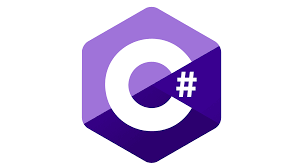Mangalayatan University Distance Education – A Smart Choice for Higher Studies in Varanasi
26-Dec-2025

Learning C# (pronounced as "C sharp") offers several benefits, making it a popular choice for developers across various domains. Here are some of the key benefits of learning the C# programming language:
Ease of Learning: C# was designed with simplicity and readability in mind. Its syntax is similar to other C-style languages like C, C++, and Java, making it relatively easy for developers familiar with those languages to transition to C#. Additionally, C# has extensive documentation and learning resources available, making it accessible to beginners.
Versatility: C# is a versatile language that can be used for developing a wide range of applications, including desktop applications, web applications, mobile apps (using Xamarin), games (using Unity), cloud services, and enterprise software. This versatility makes C# a valuable skill to have in today's software development landscape.
Integration with .NET Framework: C# is primarily associated with the .NET framework, which provides a rich set of libraries and tools for developing various types of applications. The .NET ecosystem includes libraries for tasks such as data access, networking, cryptography, and more, enabling developers to build robust and feature-rich applications efficiently.
Strongly Typed Language: C# is a strongly typed language, which means that it offers compile-time type checking, helping developers catch errors early in the development process. Strong typing also enhances code readability and maintainability, making it easier to collaborate on larger projects.
Object-Oriented Programming (OOP): C# supports object-oriented programming principles such as encapsulation, inheritance, and polymorphism, allowing developers to write modular, reusable, and maintainable code. Understanding OOP concepts in C# can lay a solid foundation for building complex software systems.
Asynchronous Programming: C# provides built-in support for asynchronous programming using features like async/await keywords and the Task Parallel Library (TPL). Asynchronous programming enables developers to write responsive and scalable applications that can handle concurrent operations efficiently, such as network requests or I/O-bound tasks.
Cross-Platform Development: With the introduction of .NET Core (now .NET 5 and later), C# has become increasingly cross-platform. Developers can write C# code and run it on various operating systems, including Windows, Linux, and macOS. This enables developers to target a broader audience and deploy applications on multiple platforms with ease.
Career Opportunities: Proficiency in C# opens up a wide range of career opportunities in industries such as software development, web development, game development, mobile app development, and cloud computing. C# developers are in high demand, and mastering the language can lead to lucrative job offers and career advancement.
Community Support: C# has a large and active community of developers who contribute to open-source projects, participate in forums, and share knowledge through blogs, tutorials, and conferences. The vibrant community ensures that developers have access to support, resources, and collaboration opportunities.
Integration with Visual Studio: C# development is often done using Microsoft's Visual Studio IDE, which offers a powerful set of tools for code editing, debugging, testing, and deployment. Visual Studio provides a seamless development experience for C# developers, enhancing productivity and efficiency.
Overall, learning C# can be highly beneficial for both novice and experienced developers, offering a powerful and versatile language for building modern software applications across different platforms and domains.